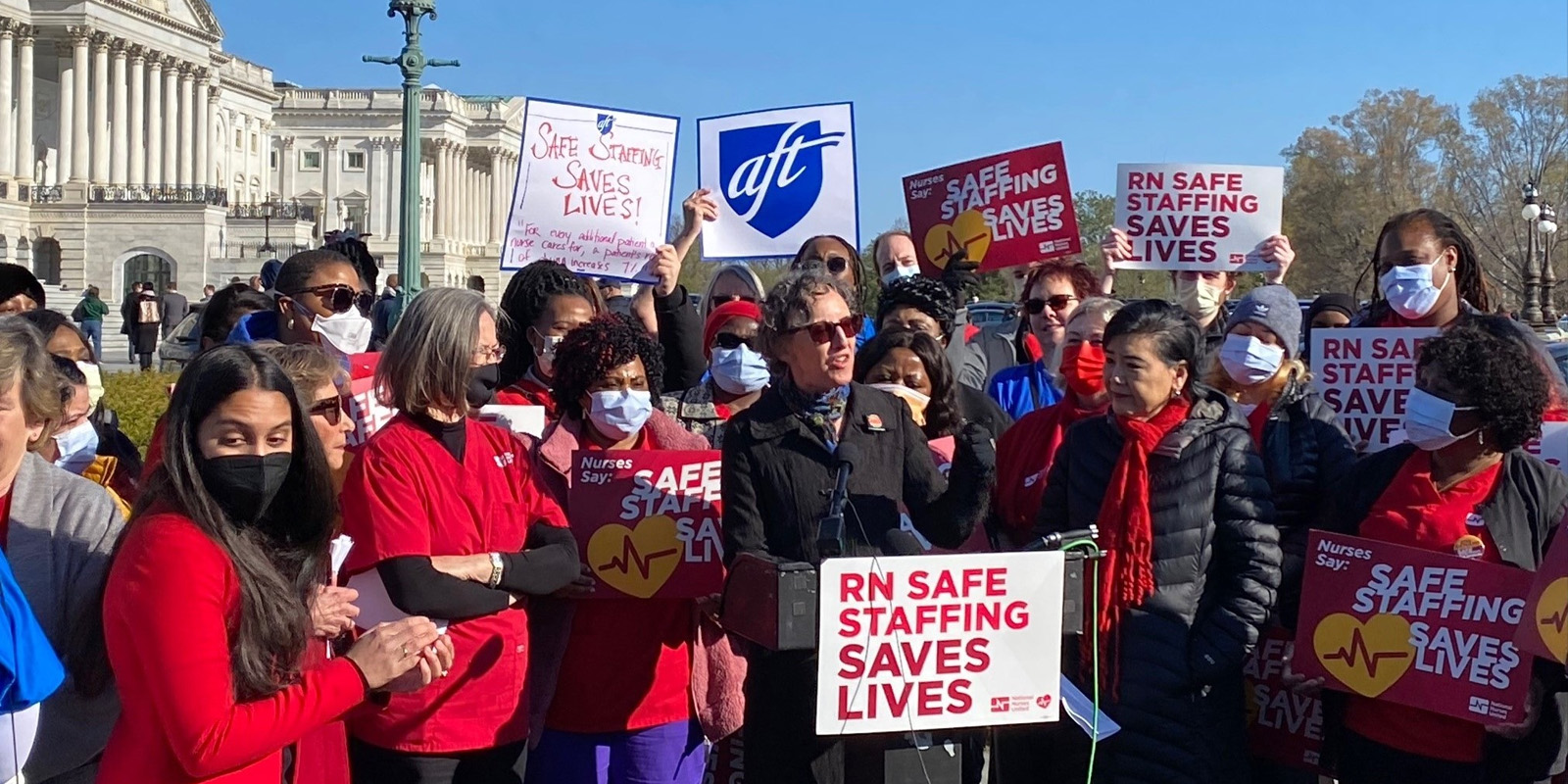The COVID-19 pandemic made clear what has been obvious for a long time: nurses are the backbone of our health care system, but they don’t have the staffing and resources they need to effectively care for their patients. They are burnt out and are being driven from the profession, and patients suffer as a result.
AFSCME is fighting for better nurse staffing and joined with the union, National Nurses United (NNU), and other allies at a press conference on Thursday to support a bill, the Nurse Staffing Standards for Hospital Patient Safety and Quality Care Act, that would create a federal mandate for safe staffing.
In speaking on behalf of AFSCME’s 1.4 million members and our union’s more than 60,000 nurses, Secretary-Treasurer Elissa McBride described not only the crisis in nursing but the broader staffing crisis that is afflicting our nation’s public service workers.
“Nurses have demanding, grueling jobs,” said McBride. “They hold positions of huge responsibility and trust. They deal with life-or-death matters every day. We cannot tolerate a staffing crisis in a profession where the stakes are so high and the margin for error is so small.”
McBride said that the status quo was “unacceptable and unsustainable,” and applauded the bold solutions included in the legislation, introduced by Ohio Sen. Sherrod Brown in the Senate and Illinois Rep. Jan Schakowsky in the House.
Those solutions include limiting the number of patients a nurse can care for in a hospital setting, establishing minimum nurse-to-patient ratios for every hospital unit, at all times. The bill also would provide whistleblower protections to ensure that nurses are free to speak out for enforcement of safe staffing standards. It would also invest in training and career development opportunities for nurses.
“There is a staffing crisis throughout public service professions – in public safety, behavioral health, sanitation, education and more,” McBride said. “AFSCME has recently launched an initiative called ‘Staff the Front Lines,’ to recruit and retain qualified people to these essential jobs that keep our communities running. Our support for this legislation is a part of that initiative.”
An NNU president and nurse, Deborah Burger, said, “It’s heartbreaking to see where we are today. Hospitals refuse to hire enough nurses — they’re more concerned with profits. The hospital industry says it can’t be done, but in California, it has been done.”
Burger was referring to a 2004 law that mandated minimum nurse-to-patient ratios — a law that AFSCME and other unions fought for.
Schakowsky spotlighted an often-overlooked fact: the root of the problem is not too few nurses, but that conditions are insurmountable, driving nurses from the profession.
“The hospital industry would like to say there is a nurse shortage,” said Schakowsky, “but over 4 million people have active nurses’ licenses. But only 3 million are working because it’s so difficult, and there are too many patients. This is time for us to save lives and protect nurses.”
American Federation of Teachers President Randi Weingarten, whose union represents nearly 200,000 nurses and other health care professionals, said, “COVID unmasked a broken health care system. Health care is on the backs of nurses and health care professionals. That’s why we need safe staffing ratios.”
Also at the press conference were local nurses from hospitals in the Washington, D.C., area, who all issued the rallying cry: “Safe staffing saves lives.”
California Rep. Judy Chu and New York Rep. Jamaal Bowman also spoke at the press conference, held on the grounds of the U.S. Capitol.
